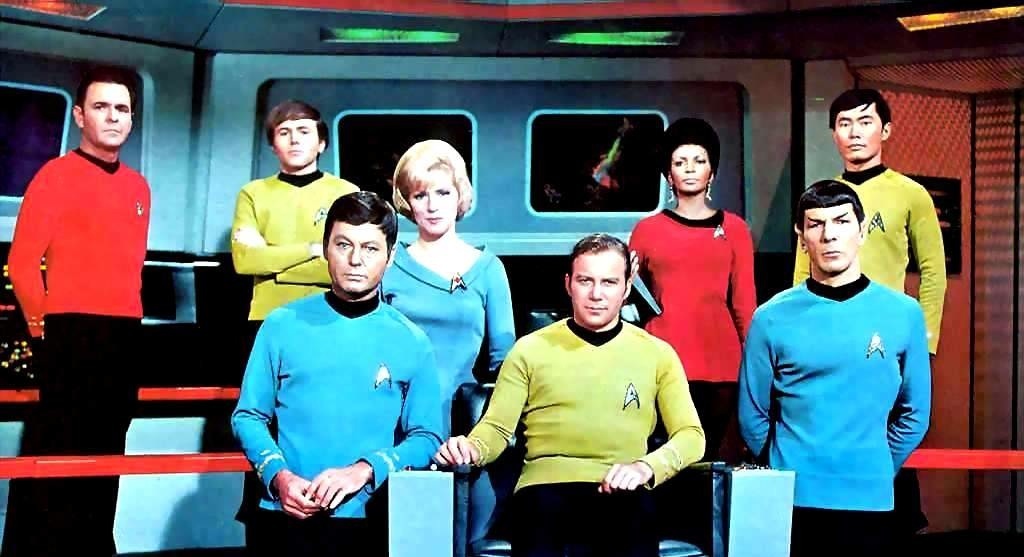Star Trek's Radical Cast→

At the time, though, this was disconcertingly radical, it didn’t respect conventional norms. There was a black woman who wasn’t a cook or maid; there was a Russian (the Enemy of the current Cold War), and a Japanese (an Enemy from a previous war). Sulu and Chekov looked like the Bad Guys – but they weren’t. Spock, too, looked weird, alien, almost devilish – as though he, too, was supposed to be a Bad Guy.
From here, the author veers into goofy fanfiction, recasting and gender swapping the parts in JJ Abrams’ Star Trek in ways that would be as radical to modern audiences as the Original Series cast was to 1960s audiences. In the fantasy cast, there are no white males, and supreme effort is taken to have ethnically appropriate actors for every role (rather than fudging English for Scottish, this Asian for that Asian, etc).
The author’s approach is too nerdy even for me and gives zero deference to the financial realities of Hollywood filmmaking. But there’s an interesting point here.
Star Trek is about the future. But more specifically, Star Trek is about a radically utopian and progressive future that goes much deeper than transporters and warp drives. Recreating the relationships and stories from the original cast is fun and makes for entertaining films. But it also turns the franchise into something harmless. It makes the whole thing retro rather than radical. And something important is lost in the process.